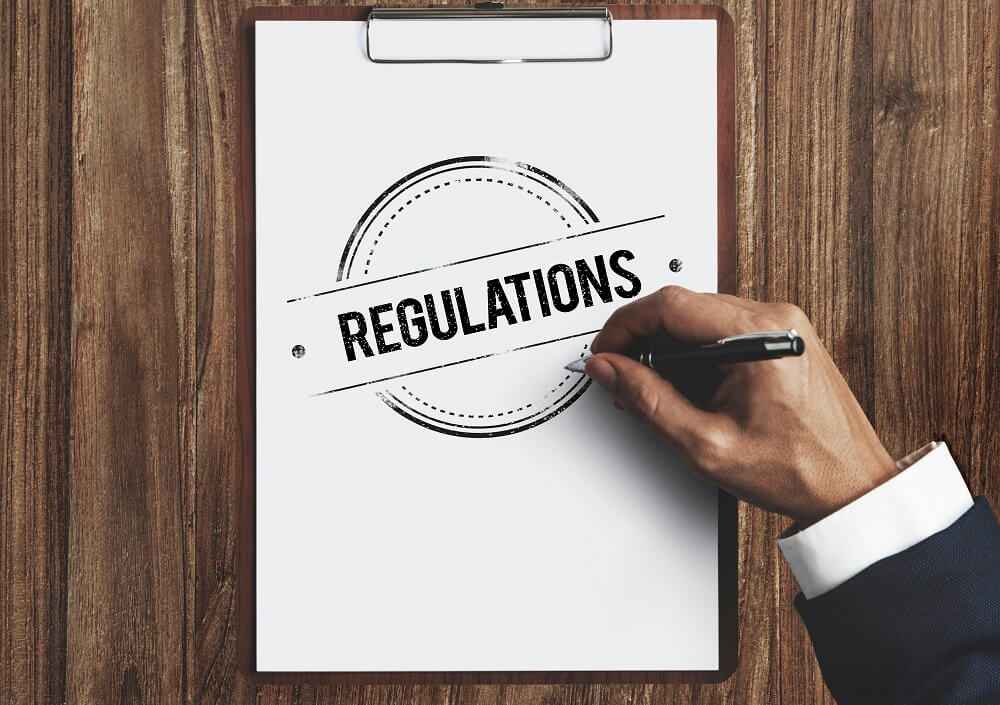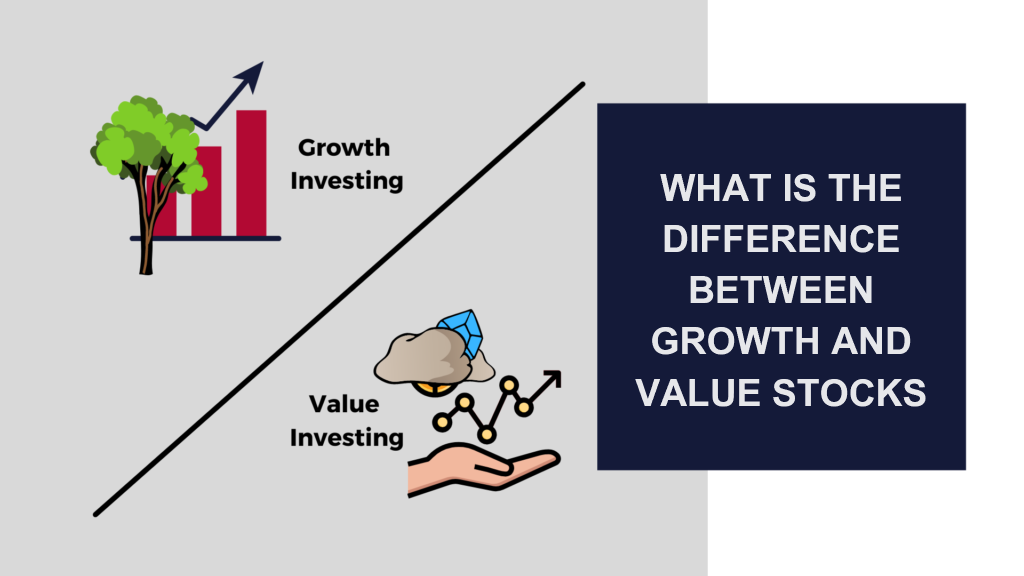Stock market regulations are like rules for the sea, keeping your investments afloat amid the waves of finance. With expert insights, you’ll learn how to navigate these waters, avoiding the hidden rocks that could sink your portfolio. This blog dives into the unseen forces that steady our financial system, from watchful regulatory bodies to powerful legislations. Understand the shields in place like the Securities Exchange Commission, which works tirelessly to ensure fairness. Legislation protects your money, setting up rules that companies must follow. You’ll see how law and order in the market means safer waters for everyone. So let’s set sail into the sea of stocks with the compass of regulation guiding us.
Understanding the Regulatory Bodies Ensuring Market Fairness
The Role of the Securities Exchange Commission
Let’s talk about the big boss of stock market oversight, the Securities Exchange Commission (SEC). This group makes sure everything in the stock world is fair. They look at how companies share info and keep an eye out for any funny business.
What does the SEC do? It stops bad acts, keeps markets honest, and looks after people’s money. That’s a big deal. They make sure no one’s hiding secrets that could hurt you when you invest. Think of them as the teachers in the market’s school.
The SEC has been around since the 1930s. Back then, people lost trust in the stock markets. The SEC was made to bring trust back. Now, they check on thousands of reports from public companies. These reports tell us about a company’s money, risks, and what the future may look like.
Plus, they have rules about insider trading, making sure no one has an unfair edge. They don’t want anyone using secret tips to make money. That would be like cheating on a test.
Responsibilities and Impact of the Financial Industry Regulatory Authority
Now, say hi to the Financial Industry Regulatory Authority (FINRA). They’re another group looking out for you. They set rules for all the places and people who sell stocks and bonds.
What is FINRA’s main job? It makes sure the people selling you stocks play by the rules. Just as you trust a bus driver to know the route, you trust your stock seller to follow the rules. FINRA also tests and licenses these pros. It’s like making sure they have a good driver’s license before they can take you on the financial road.
FINRA looks at investment protection laws, keeping your money safe. They check into possible problems, and if they find someone breaking rules, they can kick them out of the business.
So, when you put your hard-earned cash into the stock market, these two power teams – the SEC and FINRA – are your guardians. They fight to stop market manipulation and any sneaky moves that could tip the scales.
To wrap it up, the SEC and FINRA work together like superheroes to keep the world of stocks safe. Remember, investing should be fair game for everyone. These groups put on their capes every day to make that happen. Isn’t that cool?
Protecting Investors Through Legislation
Securities Act of 1933 and Securities Exchange Act of 1934
When people put money in stocks, they trust they won’t get cheated. That’s where big rules from 1933 and 1934 help. The Securities Act of 1933 was the first big U.S. law to make sure companies tell the truth when they sell stock. Think of it like a rulebook for a fair game where everyone knows the same facts. It says, “Hey, if you’re a company and want to sell shares, you gotta give everyone the real scoop.” This means they have to be open about what they do, what they own, and the risks.
Then, there’s the Securities Exchange Act of 1934. This law keeps an eye on the stock market, to make sure the game stays fair. It created the Securities Exchange Commission (SEC), which is like a referee in the world of stocks. They watch the markets, check the score, and make sure no one’s breaking the rules. The law also keeps tabs on short selling and helps stop sneaky folks from messing with stock prices.
Modern Financial Reforms: Dodd-Frank and Sarbanes-Oxley Acts
Now let’s zip to more recent times with the Dodd-Frank Wall Street Reform and Sarbanes-Oxley Act. Both are sort of like updates to the old rulebook. Dodd-Frank came after the big money mess in 2008. It brought in tighter rules to keep the stock market and banks on the straight and narrow. It means tougher checks on big banks, and it watches out for risky bets that could start trouble.
The Sarbanes-Oxley Act, or SOX, was a response to big company scandals where bosses lied and folks lost lots of money. SOX came to the rescue with new rules. It says bosses have to sign off on their company’s reports, making sure they’re not fibbing about the numbers. It also says companies need a good check-up on how they handle their money.
In all, these laws and acts build trust in the stock market. They set up a fair play zone for everyone. With these rules, everyone gets a fair shot to invest without fear of the game being rigged. And that’s what makes these laws more than just words on paper — they’re the guardians of our hard-earned cash in the stock game.
Compliance and Integrity in Corporate Conduct
Public Company Reporting Requirements and Corporate Disclosure Standards
When you buy a piece of a company, you need to know how it’s doing. Public companies must tell the truth about their health. They must share this often. They do this by filing reports with the Securities Exchange Commission (SEC). This keeps things clear for investors.
These reports include lots of numbers, like sales and profits. They also must say if big things happen that could change their business. This openness helps you make smart choices with your money. The SEC checks these reports to keep companies honest. If they find lies, the company is in big trouble. Honesty is key in the stock market, just like in life.
Securities laws like the Securities Act of 1933 make sure new stocks are safe to buy. They require details on the deal. The SEC must get these details before letting the stock sell.
Insider Trading Rules and Market Manipulation Prevention
Insider trading is like cheating in a test; it’s unfair and illegal. It happens when someone with secret company info uses it to win in the stock market. The rules against this are strict. They protect everyone from big losses.
Insiders must follow special rules when they buy or sell their company’s stock. They can’t use secret info for gain. Everyone must have the same chance. Fair play is a must in the stock market.
Market manipulation is another no-no. It’s like a trick to change stock prices for profit. This can hurt investors. The SEC hunts for such tricks to keep the market safe. They check for odd trading patterns and catch cheaters.
Imagine if a few players controlled a sports game for their gain. It wouldn’t be fair to the other players or fans. This is why we prevent market manipulation. A fair market is best for everyone.
The stock market has watchdogs like the SEC and the Financial Industry Regulatory Authority (FINRA). They guard the market like lifeguards at a beach. They make sure no one drowns in bad deals. They look for rule breakers. They fine them or ban them from the market if they find them.
To wrap up, knowing these rules helps keep your investments safe. It’s like knowing the traffic laws before you drive. It prevents crashes and gets you safely where you want to go. The same goes for the stock market. Play by the rules, and you’ll navigate safely through financial tides.
Surveillance and Enforcement Strategies in the Securities Industry
Brokerage Firms Regulations and Algorithmic Trading Oversight
Let’s dive into the world of stock market rules. These rules keep the market safe for everyone. Have you ever thought about who watches over stock trading to keep it fair? Well, we’ve got groups like the Securities Exchange Commission (SEC) and the Financial Industry Regulatory Authority (FINRA). They make sure that the market plays by the rules.
What do these groups do? They look at how stocks are bought and sold every day. They check if everyone is trading fairly. Let’s talk about brokerage firms. They help people buy and sell stocks. These firms have to follow many rules to stay in business. One big task is to handle how fast computers trade stocks, called algorithmic trading. These systems can trade in the blink of an eye!
Why does this matter? Computers are super fast. They can make big changes in the stock market very quickly. So, if they’re not watched carefully, things can go wrong. The SEC and FINRA keep an eye on these trades. They want to be sure that no one is using these speedy trades to cheat.
The Function of Commodities Futures Trading Commission and Market Abuse Directives
Now, let’s switch gears and think about things like gold and oil. When people bet on the future prices of these items, we call it ‘futures trading’. The Commodities Futures Trading Commission (CFTC) makes sure this betting is done right. They work to stop bad actions, like market abuse, in their tracks.
Market abuse sounds serious, right? It is. It’s when someone trades in a tricky way to make more money. It’s not fair to others and the CFTC fights this. They set rules to prevent it. One job they have is to check for market abuse and stop those who break the rules.
Ever heard of ‘blue sky laws’? These are state-level rules. They’re another layer of protection besides the big federal laws. They keep local stock markets safe, like a safe blue sky above us.
What’s the big goal of all this? It’s to make our stock markets places where we can trust that everyone follows the same rules. We want to feel good about investing our money. And to do so, everyone has to play fair. That’s what these rules and groups are for. They work hard to make sure the stock market is a safe place for our money.
It’s a tough job, keeping an eye on all these trades and rules. But it’s important. It helps us trust that the market is fair. This trust lets us buy and sell stocks without worry. Thanks to the SEC, FINRA, and CFTC, we can invest with confidence.
In this blog post, we’ve seen how rules and watchdogs keep markets fair. We talked about the SEC and FINRA, groups that help the stock market stay on track. We covered the laws from the 1930s up to recent ones like Dodd-Frank and Sarbanes-Oxley, which work to protect you when you invest. We learned about the rules companies must follow to be clear with you and how the market stays clean from cheats. Lastly, we saw how those in charge watch over brokers and trading to stop foul play.
My final thought? These layers of protection do a tough but key job. They let you invest with more trust and less worry. So when you put your hard-earned cash into stocks, know that these rules and groups are in your corner, making sure everything’s square and fair.
Q&A :
What are the primary stock market regulations investors should be aware of?
Stock market regulations are put in place to maintain a fair, efficient, and transparent financial trading environment. Investors should be broadly aware of several key rules, such as insider trading laws, disclosure requirements set forth by the Securities and Exchange Commission (SEC), the Sarbanes-Oxley Act for corporate governance, and compliance with listing requirements for stocks on exchanges. Staying informed about these can help investors navigate the stock market more safely.
How do stock market regulations impact trading?
Stock market regulations can significantly impact trading by setting the boundaries for legal trading practices. These regulations are designed to prevent fraud, protect investors from market manipulation, encourage fair competition, and ensure that companies provide accurate financial information. These measures can sometimes limit the types of trades investors can perform and the timing, but they are critical for maintaining investor confidence and ensuring the integrity of the markets.
Who enforces stock market regulations?
In the United States, the Securities and Exchange Commission (SEC) is the primary agency responsible for enforcing federal stock market regulations. Additionally, FINRA (Financial Industry Regulatory Authority) oversees brokerage firms, their agents, and the trading that occurs on the markets. Commodity Futures Trading Commission (CFTC) focuses on options and futures markets. These bodies work together to ensure compliance with laws and to protect investors.
What are the consequences of violating stock market regulations?
Violating stock market regulations can lead to severe consequences, including hefty fines, restitution payments, and criminal charges that may result in imprisonment. Penalties can be imposed on individuals as well as companies. Sanctions can also extend to barring individuals from serving as officers or directors of public companies, and firms can be expelled from stock exchanges or prohibited from trading.
How do international stock market regulations differ?
International stock market regulations vary widely as they are influenced by each country’s own legal framework, economic policies, and market practices. While there may be common principles – such as promoting transparency and preventing market abuse – individual countries have their own regulatory bodies and specific rules that govern their markets. For instance, the UK has the Financial Conduct Authority (FCA), whereas in Japan, it’s the Financial Services Agency (FSA). Differences in regulations can affect how securities are issued, traded, and how companies are required to report financial information.






